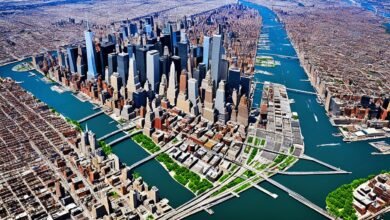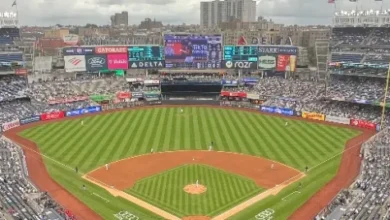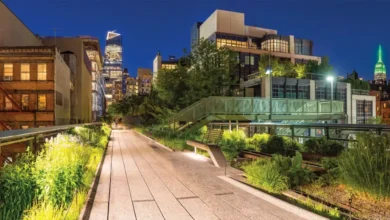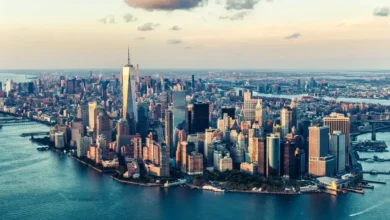Table of Contents
The Enchanting Vibe of Central Park: An Urban Oasis
Central Park, the sprawling green heart of New York City, stands as a testament to nature’s splendor amidst urban chaos. Covering 843 acres, it offers an escape from the bustling city streets, providing a serene and picturesque retreat for residents and visitors alike. The park’s vibe is a harmonious blend of natural beauty, recreational spaces, cultural landmarks, and historical significance, creating a unique atmosphere that captivates the hearts of millions.
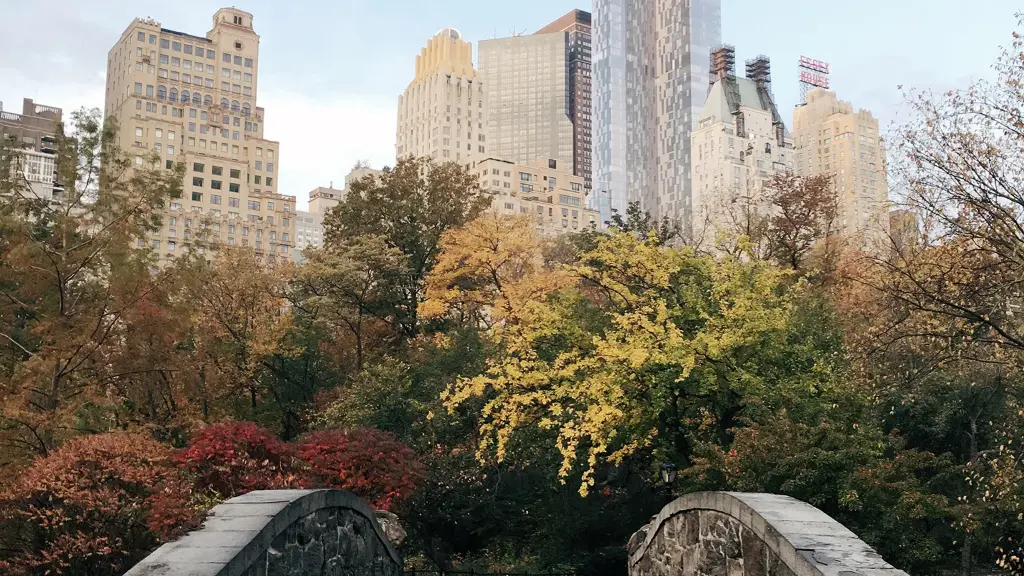
The Significance of Central Park
Central Park is not just a park; it’s an integral part of New York City’s identity. Designed by Frederick Law Olmsted and Calvert Vaux, it opened in 1858, and since then, it has become a symbol of urban planning, landscape architecture, and cultural heritage. Its importance extends beyond its boundaries, influencing the development of urban parks worldwide.
The Allure of Central Park
The park’s allure lies in its ability to offer something for everyone. Whether you’re seeking solitude, adventure, cultural enrichment, or physical activity, Central Park delivers. Its diverse landscapes, from manicured gardens to dense woodlands, cater to a wide range of interests and activities, making it a beloved destination for all ages.
The Natural Beauty of Central Park
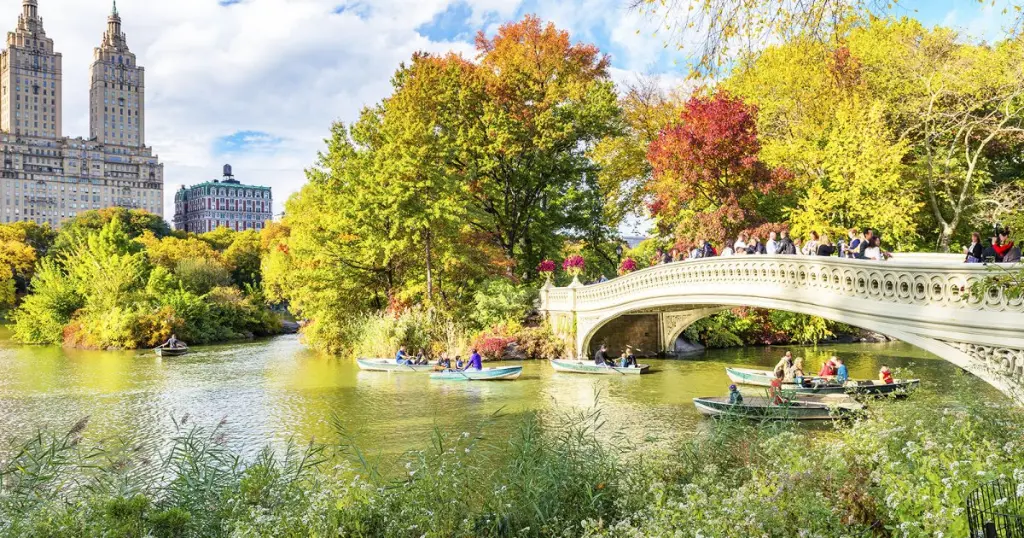
Diverse Landscapes
Central Park boasts an array of landscapes that create a sense of wonder and tranquility. The park’s design intentionally incorporates varying terrains and ecosystems, including:
- Meadows and Lawns: Open spaces like the Great Lawn and Sheep Meadow provide ample room for picnics, sunbathing, and recreational activities.
- Woodlands: Areas such as the Ramble and the North Woods offer dense foliage, winding paths, and a sense of wilderness in the heart of the city.
- Water Bodies: Lakes, ponds, and streams, including the iconic Central Park Lake and the peaceful Turtle Pond, add to the park’s scenic beauty.
Flora and Fauna
Central Park is home to a rich diversity of plant and animal life. Its meticulously maintained gardens, like the Conservatory Garden, showcase seasonal flowers and plants, providing a colorful spectacle year-round. Birdwatchers flock to the park to observe over 200 bird species, while other wildlife, including squirrels, turtles, and fish, thrive in its various habitats.
Seasonal Transformations
One of the park’s most enchanting aspects is its seasonal transformations. Each season brings a unique charm:
- Spring: The park blossoms with vibrant flowers and budding trees, creating a rejuvenating atmosphere.
- Summer: Lush greenery and warm weather invite visitors to enjoy outdoor activities and festivals.
- Autumn: A kaleidoscope of fall foliage paints the park in hues of red, orange, and yellow.
- Winter: Snow-covered landscapes turn Central Park into a winter wonderland, perfect for ice skating and snowball fights.
Central Park: Recreational Activities
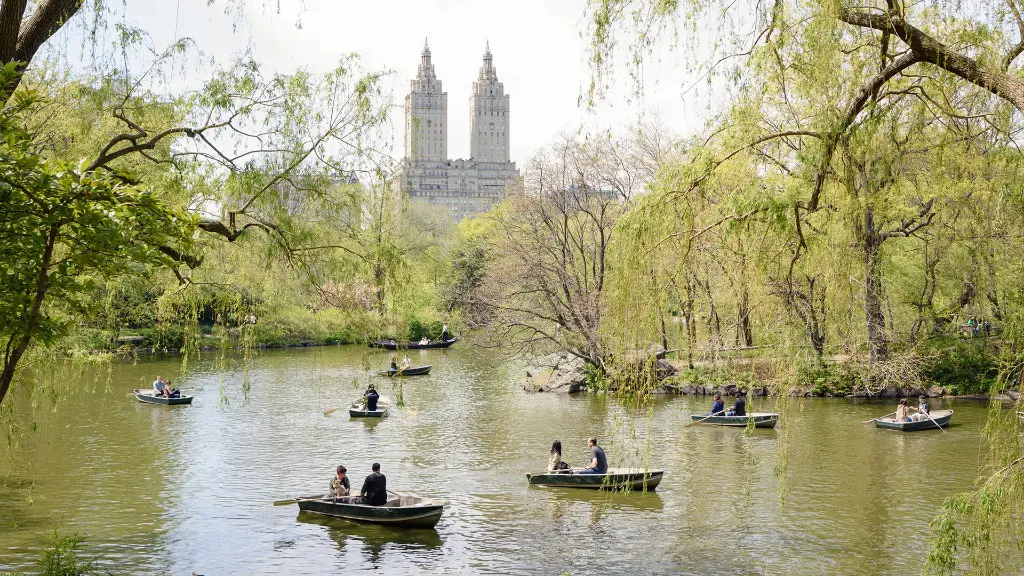
Walking and Jogging
Central Park’s extensive network of pathways and trails makes it a haven for walkers and joggers. Popular routes include the 6.1-mile loop around the park’s perimeter and the scenic paths through the Ramble and the Mall. The park’s varied terrain offers both challenging and leisurely options for all fitness levels.
Cycling and Rollerblading
Cyclists and rollerbladers can enjoy designated lanes and paths throughout the park. Bike rentals are available, and the park hosts various cycling events and races, making it a hub for enthusiasts of all ages.
Sports and Games
Central Park offers numerous facilities for sports and games, including:
- Tennis Courts: The Central Park Tennis Center features 26 courts for tennis enthusiasts.
- Baseball Fields: Several fields, such as the Heckscher Ballfields, accommodate baseball and softball games.
- Basketball and Handball Courts: These courts are scattered throughout the park, providing spaces for pickup games and organized events.
Picnicking and Relaxation
The park’s many meadows and lawns provide perfect spots for picnicking and relaxation. Families and friends gather to enjoy meals, play games, and soak in the serene environment. Designated picnic areas and facilities, such as the Great Hill and Sheep Meadow, offer ample space for gatherings.
Cultural and Historical Landmarks
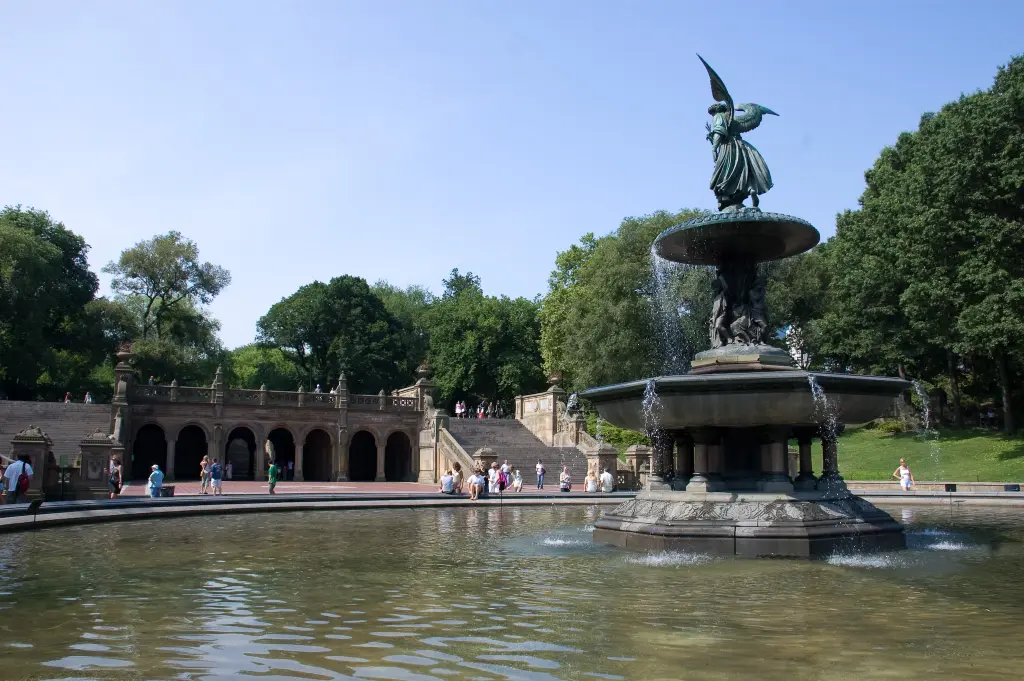
The Bethesda Terrace and Fountain
Bethesda Terrace and Fountain, located in the heart of the park, is a centerpiece of Central Park’s design. The terrace, with its grand staircases and intricate carvings, overlooks the iconic Angel of the Waters statue. This area is a popular spot for tourists, photographers, and those seeking a picturesque setting for special occasions.
The Central Park Zoo
The Central Park Zoo, one of the oldest in the United States, offers visitors a chance to observe a variety of animals in carefully designed habitats. From the tropical rainforest to the polar circle, the zoo provides an educational and entertaining experience for all ages.
The Belvedere Castle
Perched atop Vista Rock, the Belvedere Castle offers panoramic views of the park and the city skyline. The castle, which houses a visitor center and nature observatory, is a favorite spot for tourists and locals alike.
Literary Walk and the Statues
The Mall, also known as Literary Walk, is lined with statues of famous writers and poets, including William Shakespeare and Robert Burns. This promenade, flanked by American elm trees, provides a serene and contemplative atmosphere for visitors.
Events and Entertainment
Concerts and Performances
Central Park hosts a variety of concerts and performances throughout the year. The SummerStage festival brings free music, dance, and theater performances to the park, featuring both local and international artists. The Great Lawn has also been the venue for major concerts by renowned artists, drawing massive crowds.
Theater and Film
Shakespeare in the Park, presented by the Public Theater, offers free performances of Shakespearean plays at the Delacorte Theater. This beloved tradition attracts theater enthusiasts from around the city and beyond. Additionally, the Central Park Conservancy hosts outdoor movie nights, where classic and contemporary films are screened under the stars.
Festivals and Celebrations
The park is home to numerous festivals and celebrations, reflecting the city’s diverse culture. Events like the Central Park Conservancy’s annual Halloween Parade and the New York City Marathon add to the vibrant and festive atmosphere of the park.
The Role of Central Park in Community and Wellness
Social and Community Engagement
Central Park serves as a vital community hub, fostering social interaction and engagement. The park’s open spaces and facilities host a variety of community events, from fitness classes and art workshops to volunteer opportunities and educational programs.
Health and Wellness
The park’s tranquil environment and recreational opportunities contribute significantly to the physical and mental well-being of New Yorkers. Activities such as yoga, tai chi, and meditation classes take place regularly, providing residents with accessible ways to enhance their health.
Environmental Education
Central Park is a living laboratory for environmental education. Programs and tours offered by the Central Park Conservancy and other organizations educate visitors about the park’s ecosystems, conservation efforts, and sustainable practices.
Central Park’s Impact on New York City
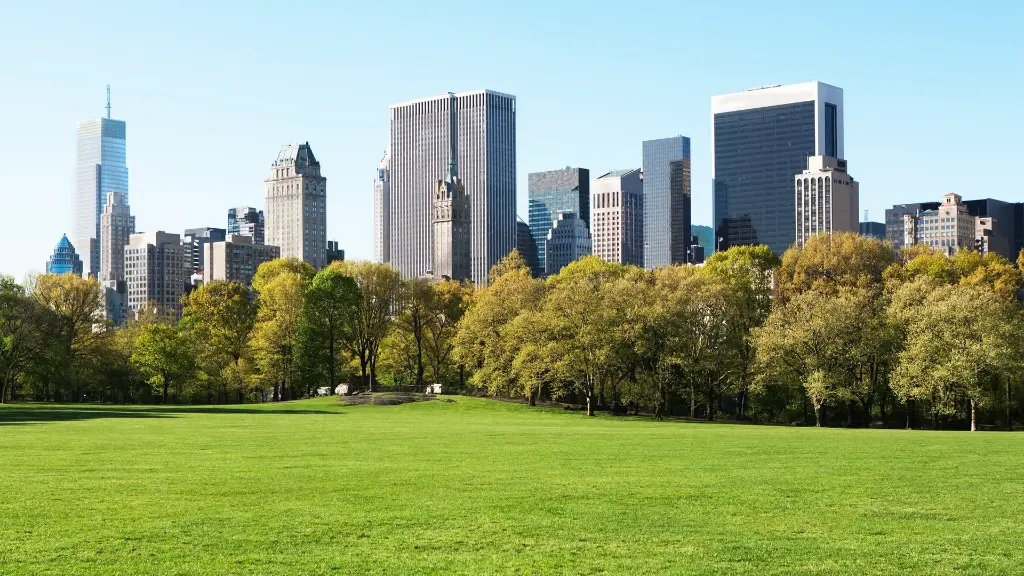
Economic Benefits
Central Park contributes significantly to the local economy. The park attracts millions of tourists annually, generating revenue for nearby businesses, hotels, and restaurants. Property values around the park are also higher, reflecting its desirability as a residential and commercial location.
Urban Planning and Green Spaces
Central Park has influenced urban planning and the development of green spaces worldwide. Its success has inspired the creation of similar parks in cities around the globe, highlighting the importance of integrating nature into urban environments.
Preservation and Sustainability
The Central Park Conservancy, established in 1980, plays a crucial role in preserving and maintaining the park. Through fundraising, advocacy, and volunteer efforts, the Conservancy ensures that Central Park remains a vibrant and sustainable urban oasis for future generations.
The Future of Central Park

Ongoing Improvements
The Central Park Conservancy continues to invest in the park’s infrastructure and amenities. Ongoing projects include the restoration of historic structures, the enhancement of recreational facilities, and the improvement of accessibility for all visitors.
Adapting to Changing Needs
As New York City evolves, Central Park adapts to meet the changing needs of its visitors. Future initiatives may include the expansion of environmental education programs, the introduction of new recreational opportunities, and the enhancement of sustainable practices.
Ensuring Accessibility and Inclusivity
Ensuring that Central Park remains accessible and inclusive is a priority. Efforts to improve pathways, signage, and facilities aim to make the park welcoming to everyone, regardless of age, ability, or background.
Central Park’s enchanting vibe lies in its ability to offer a peaceful retreat, a vibrant cultural hub, and a community space all in one. Its diverse landscapes, recreational activities, cultural landmarks, and historical significance create a unique atmosphere that continues to captivate and inspire. As the park evolves to meet the needs of future generations, its role as an urban oasis will remain integral to the fabric of New York City. Whether you’re a lifelong resident or a first-time visitor, Central Park promises an experience that resonates with the beauty, diversity, and spirit of the city itself.
